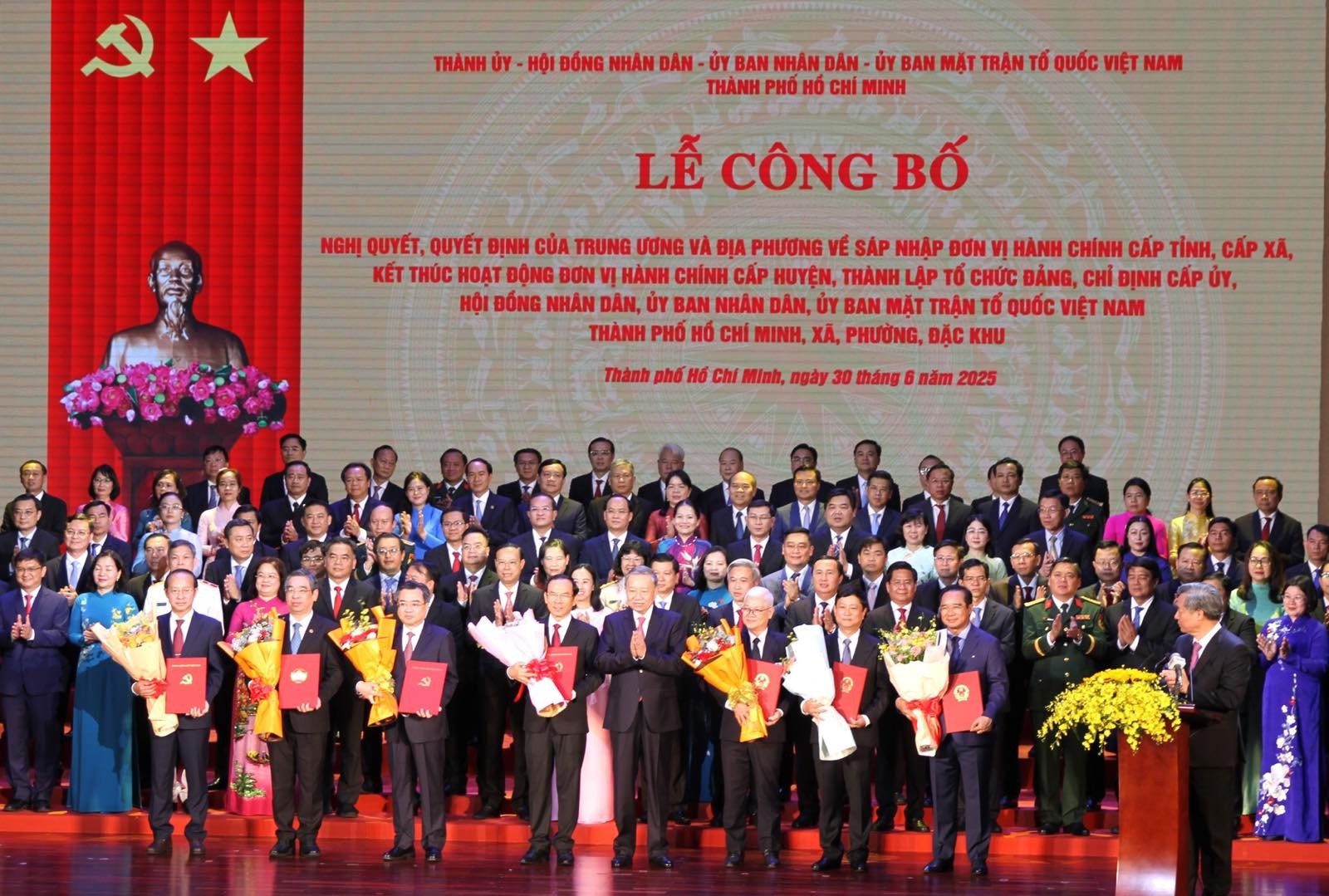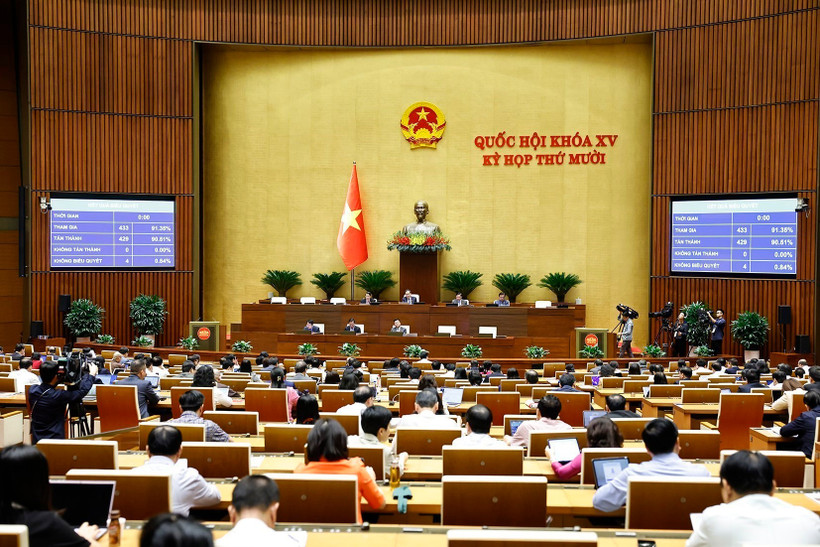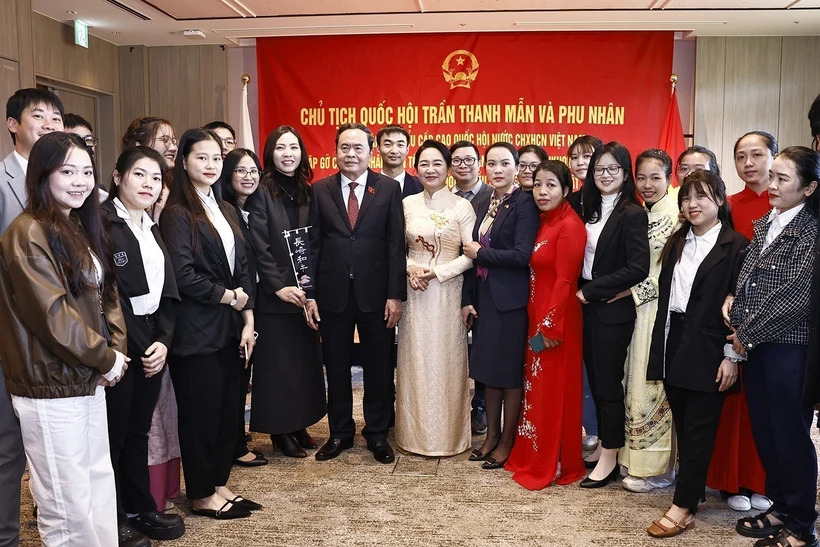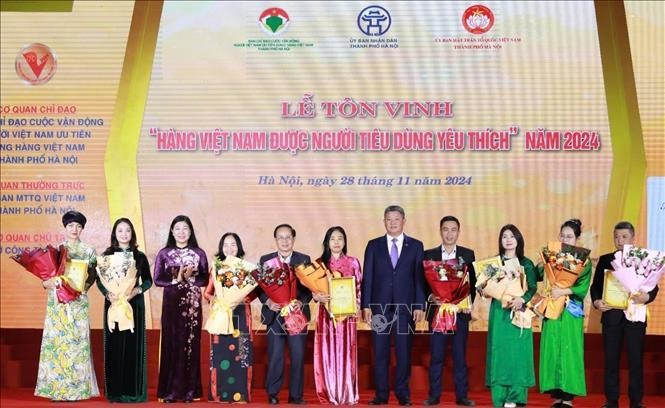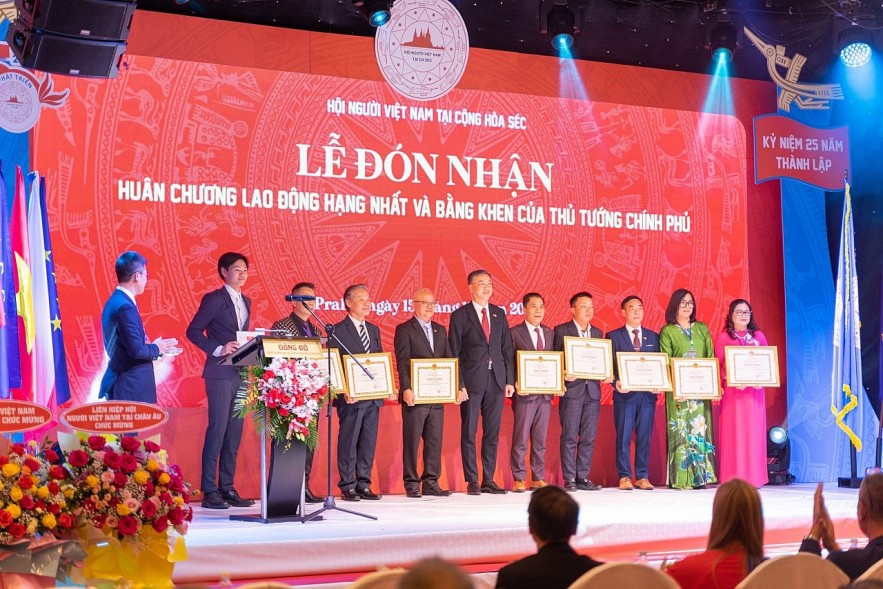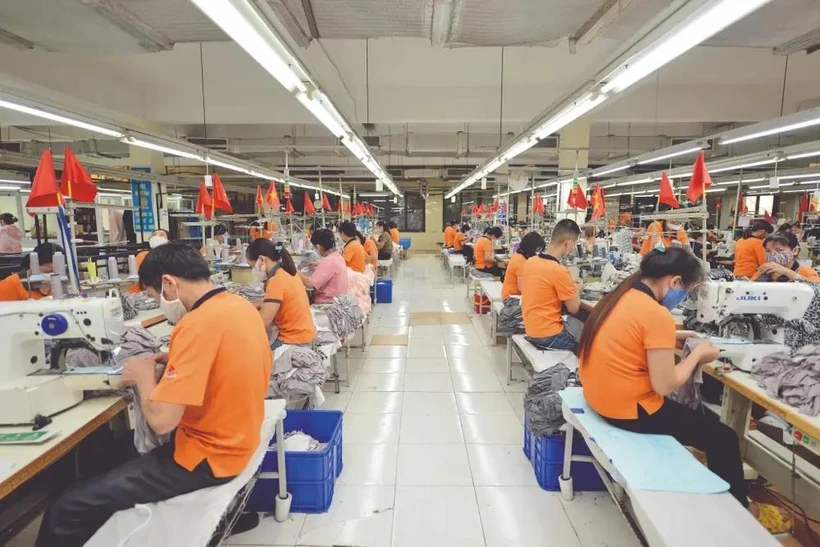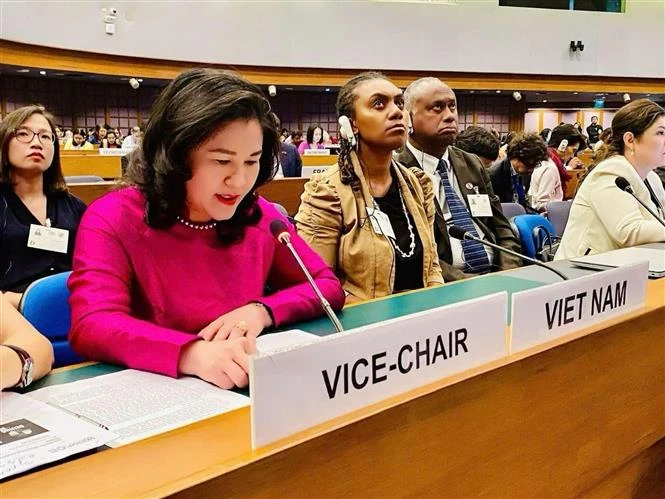
Deputy Minister of Labour, Invalids and Social Affairs Nguyen Thi Ha speaks at the conference (Photo: VNA)
Bangkok (VNA) – Viet Nam ranks 72nd out of 146 countries in the gender equality index this year, while the rate of female representatives in the National Assembly is always high and currently stands at 30.26%.
The information was shared by Deputy Minister of Labour, Invalids and Social Affairs Nguyen Thi Ha at the three-day Asia-Pacific Ministerial Conference on the Beijing+30 Review, which was officially launched on November 19 in Bangkok, Thailand.
The Bangkok conference, which was convened by the Economic and Social Commission of Asia and the Pacific (ESCAP), in collaboration with the UN Women Regional Office for Asia and the Pacific, was set on the 30th anniversary of the fourth World Conference on Women and the Adoption of the Beijing Declaration and Platform for Action.
Over 1,200 participants have joined the conference and 27 side events on a wide range of topics related to gender equality and women’s empowerment.
Deputy Minister Ha confirmed that over the past 30 years and especially for the period 2019-2024, the Vietnamese Government has been determined to realise the goals of the Beijing Declaration and Platform for Action and other international commitments on gender equality, notably the development and accomplishing national laws and policies.
The nation has seriously mainstreamed gender equality in the development of legal documents and policies to eliminate discriminatory regulations against women or men, she said.
The Labour Code 2019, the Law on Prevention and Combat against Domestic Violence 2022, the Social Insurance Law 2024 and other legal documents have new regulations to ensure women's rights, promote gender equality, and prevent and respond to gender-based violence and domestic violence.
The National Strategy on Gender Equality for the 2021-2030 period was adopted with a variety of goals, targets and solutions to narrow the gender gap, creating conditions and opportunities for women and men to equally participate and benefit from all areas of the social life, contributing to the sustainable development of the country.
The active participation of the government and socio-political organisations from the central to local levels in implementing laws and policies has brought about important results, said Ha, adding that Vietnamese women now account for 46.8% of the national workforce. The labour force participation rate of women is 62.4%.
The rate of women-owned businesses reaches 28.2%. More and more outstanding Vietnamese female entrepreneurs and CEOs have been recognised and honoured by economic groups in the world.
In addition, the gender gap in all levels of education has been narrowed, the health care system has been strengthened for ethnic minority women and those who migrate from rural to urban areas, and the service system to support victims of gender-based violence has been expanded and improved, according to the deputy minister.
“Based on the experience gained, Viet Nam believes that to achieve progress in gender equality, it is important to have common awareness that economic development must go along with social justice and progress, poverty reduction and care for vulnerable groups, especially women and children, further strengthening the state management of gender equality and mainstreaming gender equality in programmes and initiatives at all levels and fields,” said Ha.
Though encouraging results have been achieved, like many other countries in the region, Viet Nam is facing a number of difficulties and challenges in this process. Those are gender stereotypes which still exist and will take time to change, the lack of gender-disaggregated statistics, rapidly ageing population, along with the negative impacts of climate change, natural disasters and epidemics on people's lives, especially women and children.
With the desire to maintain and promote achievements in gender equality, the country is determined to implement the solutions stated in the National Review of the 30-year implementation of the Beijing Declaration and Platform for Action, aiming for successful implementation of the 2030 Agenda on sustainable development, and leaving no one behind in the development process, she said.
It will also continue to strengthen the partnership between the Government and relevant stakeholders, including the United Nations agencies, to maximise their support and outcomes of gender equality and women's advancement, added Ha./.
Source: VNA

